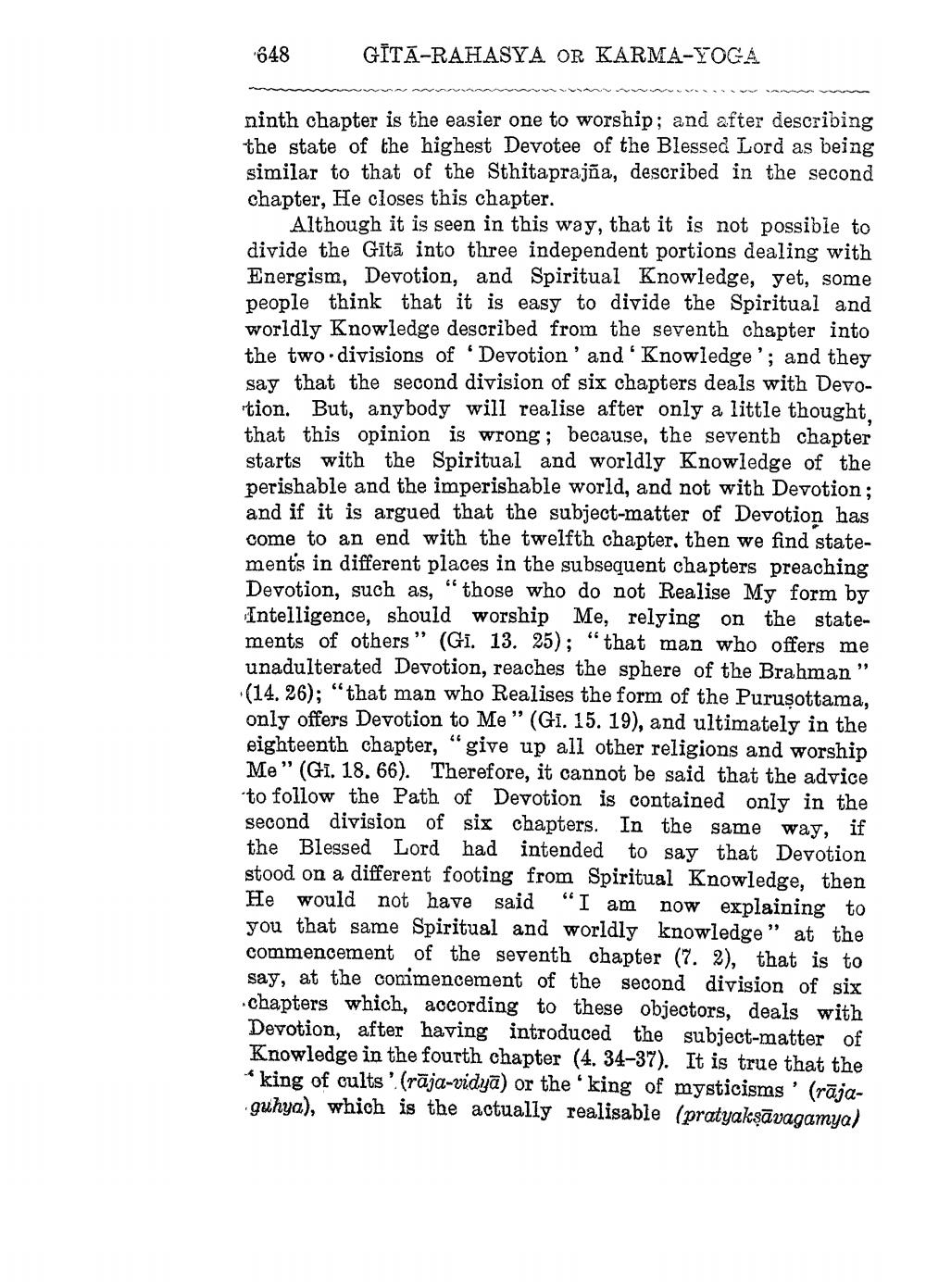________________
648
GITA-RAHASYA OR KARMA-YOGA
ninth chapter is the easier one to worship; and after describing the state of the highest Devotee of the Blessed Lord as being similar to that of the Sthitaprajña, described in the second chapter, He closes this chapter.
66
Although it is seen in this way, that it is not possible to divide the Gita into three independent portions dealing with Energism, Devotion, and Spiritual Knowledge, yet, some people think that it is easy to divide the Spiritual and worldly Knowledge described from the seventh chapter into the two divisions of Devotion' and ' Knowledge'; and they say that the second division of six chapters deals with Devotion. But, anybody will realise after only a little thought, that this opinion is wrong; because, the seventh chapter starts with the Spiritual and worldly Knowledge of the perishable and the imperishable world, and not with Devotion; and if it is argued that the subject-matter of Devotion has come to an end with the twelfth chapter, then we find statements in different places in the subsequent chapters preaching Devotion, such as, those who do not Realise My form by Intelligence, should worship Me, relying on the statements of others (GI. 13. 25); "that man who offers me unadulterated Devotion, reaches the sphere of the Brahman " (14. 26); "that man who Realises the form of the Purusottama, only offers Devotion to Me " (GI. 15. 19), and ultimately in the eighteenth chapter, "give up all other religions and worship Me" (GI. 18. 66). Therefore, it cannot be said that the advice to follow the Path of Devotion is contained only in the second division of six chapters. In the same way, if the Blessed Lord had intended to say that Devotion stood on a different footing from Spiritual Knowledge, then He would not have said "I am now explaining to you that same Spiritual and worldly knowledge" at the commencement of the seventh chapter (7. 2), that is to say, at the commencement of the second division of six chapters which, according to these objectors, deals with Devotion, after having introduced the subject-matter of Knowledge in the fourth chapter (4. 34-37). It is true that the "king of cults' (raja-vidya) or the 'king of mysticisms' (rājaguhya), which is the actually realisable (pratyakṣāvagamya)




